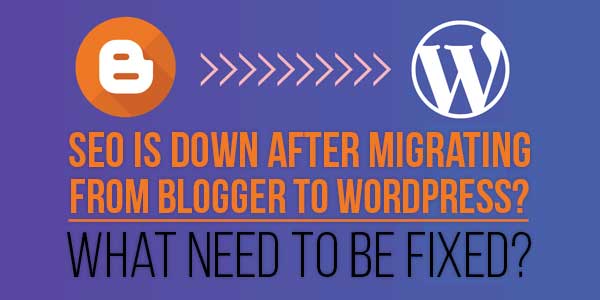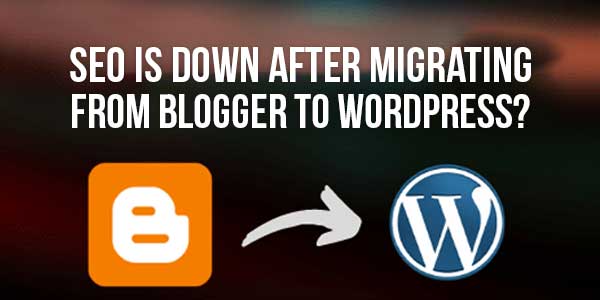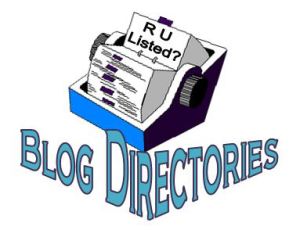
Table of Contents
SEO Is Down After Migrating From Blogger To WordPress? What Need To Be Fixed?
Website migration can be a nightmare if not handled properly, especially when moving from Blogger to WordPress. Many site owners experience a sudden drop in search rankings and organic traffic post-migration. If you’re facing this issue, don’t panic! This comprehensive guide will walk you through the common pitfalls and proven solutions to recover your SEO performance.
Why Your SEO Dropped After WordPress Migration
Understanding the root causes is the first step toward recovery. Here are the most common reasons for SEO decline after migrating from Blogger to WordPress:
- Improper URL Structure: Broken or changed URLs that weren’t properly redirected
- Missing 301 Redirects: Search engines can’t find your old content at its new location
- Canonical Issues: Duplicate content problems arising from multiple URL versions
- Metadata Changes: Altered title tags and meta descriptions affecting CTR
- Site Speed Differences: WordPress might be slower if not optimized properly
“Migration SEO issues are temporary if handled correctly. The key is systematic troubleshooting and fixing one element at a time.” – WordPress SEO Expert
Essential Fixes To Recover Your SEO Rankings
1. Implement Proper 301 Redirects
This is the most critical step. Every old Blogger URL must redirect to its corresponding new WordPress URL. For Blogger migrations, pay special attention to:
- Redirecting both www and non-www versions
- Handling Blogger’s /search?q= parameter URLs
- Setting up redirects for paginated pages (/search/label/ posts)
Use plugins like Redirection or set up server-level redirects in .htaccess for better performance.
2. Fix URL Structure Mismatches
Blogger and WordPress use different default URL structures. If you changed your permalinks during migration, ensure:
- Your new structure matches the old one as closely as possible
- All special characters are properly encoded
- Category and tag bases are consistent with your old setup
3. Audit And Recreate Your Metadata
During migration, custom title tags and meta descriptions often get lost. Use tools like SEMrush or Screaming Frog to:
- Compare old and new metadata
- Identify missing or truncated meta tags
- Reimplement your optimized titles and descriptions
4. Resolve Indexing Issues
Check Google Search Console for coverage errors. Common post-migration indexing problems include:
- Blocked by robots.txt
- 404 errors from unredirected URLs
- Soft 404s due to empty category pages
Submit an updated sitemap and request reindexing of important pages.

Technical SEO Considerations
1. Optimize WordPress Performance
WordPress can be slower than Blogger if not optimized. Implement:
- Caching solutions like WP Rocket
- Image optimization with Smush or ShortPixel
- Minification of CSS and JavaScript
- Consider a better hosting solution if needed
2. Handle Structured Data Properly
Blogger’s automatic schema markup won’t carry over. Use plugins like:
- Schema Pro
- Rank Math
- Yoast SEO
To recreate your breadcrumbs, article, and organization schema.
3. Fix Internal Linking Structure
Internal links pointing to old Blogger URLs will now be broken. Use a tool like Link Whisper to:
- Identify broken internal links
- Update them to new WordPress URLs
- Improve your overall internal linking strategy
Content-Related Fixes
1. Address Duplicate Content Issues
Common duplicate content problems after migration include:
- Multiple URL versions (HTTP/HTTPS, www/non-www)
- Paginated archives creating thin content
- Tag and category pages with identical content
Set proper canonicals and noindex thin content pages where appropriate.
2. Rebuild Your Content Strategy
Use the migration as an opportunity to:
- Update outdated content
- Merge thin posts into comprehensive guides
- Add fresh examples and current data
Monitoring And Recovery Timeline
SEO recovery takes time. Here’s what to expect:
- 1-2 Weeks: Technical fixes should start showing impact
- 3-4 Weeks: Rankings may fluctuate as Google reprocesses pages
- 6-8 Weeks: Full recovery expected if all issues were addressed
Continue monitoring using analytics tools and make adjustments as needed.
Preventative Measures For Future Migrations
Learn from this experience by:
- Creating a detailed migration checklist
- Testing on a staging site first
- Having an SEO professional review your plan
For more WordPress optimization tips, check out our guide on boosting WordPress performance.
Conclusion
SEO drops after migrating from Blogger to WordPress are common but fixable. By methodically addressing redirects, technical SEO elements, content structure, and performance issues, you can not only recover your rankings but potentially surpass your previous performance. Remember that patience and consistent monitoring are key during the recovery period.
If you’re still struggling after implementing these fixes, consider consulting with a professional SEO service for personalized assistance with your migration recovery.


















Great insights! I recently migrated from Blogger to WordPress and noticed a drop in my SEO. This guide really helped me understand the importance of 301 redirects and fixing URL structures. The tips on internal linking and metadata are spot on—thanks for sharing such a detailed and actionable post!
Welcome here and thanks for reading our article and sharing your view. This will be very helpful to us to let us motivate to provide you with more awesome and valuable content from a different mind. Thanks again.